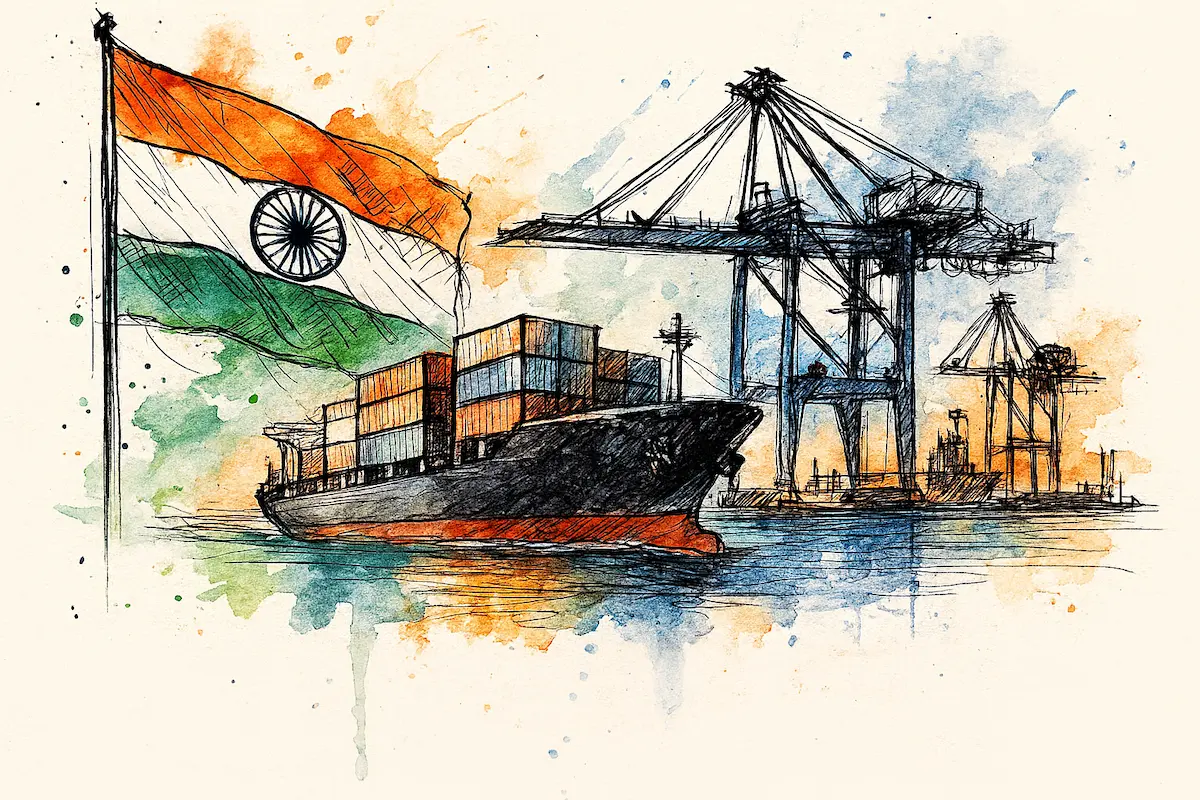
In 2025, India has carried out one of the most important modernization of its maritime framework in live memory by acting in five laws.
Four prominent acts
- In The act of transporting the merchant,
- In Bills of loading operation,
- In The carriage of goods through the sea, Vat
- In The action of coastal transportation Received presidential consent in 2025
- While Bill of Indian ports, 2025By Rajya Sabha and is on the way to the President’s consent ..
These laws collectively replace the obsolete statute, before independence (1947), with a prospective legal framework that coordinates India with international conventions, simplifies job processes, and reinforces the role of the country in global supply chains.
In addition, these measures consolidate and amend the law on the transportation of merchants, provide carriers and immunity to carriages by sea, providing coastal and domestic transportation, and creating a forward framework for port development and sovereignty.
For an economy with more than 90 % of its volume depends on the maritime trade, these major repairs can be a game change.
– Advertise here –
Transportation Act, 2025
The Bazargan Transport Act, 2025, consolidates and amends the Bazargan Transportation Act to ensure Indian obligations under marine treaties and international instruments.
It also guarantees the development of Indian transport and efficient maritime maintenance of Indian Business in the best way to serve national interests.
The law applies to ships registered in India or the need to register in India. These structures, including the National Transportation Board and the Welfare Board.
Bills of law, 2025
The Bills Bills Act provides 2025 for the transfer of lawsuit and debt to the sender named in a bill, and any of the loading bill that approves the property in the goods through cargo or approves.
Each sender and any confirmed has been transferred to all the lawsuits of the petition and is entrusted to him, and is subject to the same debt as if the contract in the bill had been carried out with such or approved.
A loading bill in the hands of a sender or confirmation for valuable review is definitive evidence of transportation against the master or someone else who signs the same, subject to the proven that it is incorrect without default with the carrier or holder of a defense, is a defense.
The law abolishs Indian bills 1856, providing a clearer and modern framework for documentation, rights and debt.
Carriage of goods by sea, 2025
The Law on the Shipment of goods by sea, 2025 provides responsibilities, debt, salaries and immunity connected to carriers according to the shipment of goods by sea.
Introduction to the International Conference on Marine Law in Brussels in 1922 and the subsequent reforms of 1968 and 1979.
This law gives the law to the laws applicable to its program. These laws apply to the shipping of goods by sea on ships that transport goods from any port in India to any other port, both in India and abroad.


Any loading bill or similar title issued in India, which contains or evidence of the contract in which the laws enforced, must contain an explicit statement that is subject to the laws enforced in the program set by this law.
Bill of Indian ports, 2025
The Indian Ports bill, 2025, consolidates the law on ports, promotes integrated port development, facilitates the ease of doing so, and guarantees the optimal use of the Indian coastline.
This enables the creation of government maritime delegations for effective management of ports other than the main ports and creates a maritime government development council to strengthen the growth and development of the port sector.
The bill provides contamination management, disaster, emergency, security, safety, navigation and data in ports, adaptation to international tools, port conservation, refereeing mechanisms for port and port community disputes and ship traffic services.
Why these changes are important
For decades, the Indian Marine Law was a patch of colonial statutes and incremental reforms. New acts and bill replaces this with a modern and modern legal structure that uses the precise language of global conventions and maritime action.
India has put India under the Indian flag, assuring the observance of the treaties, defining clear responsibilities for ship owners, transmitters and carriers, and providing new sovereignty structures for ports and sailors, to improve efficiency, reduce disputes, enhance safety and environmental protection, and expand transportation under the Indian flag.
End
The Bazargan Transportation Act, the Law of Bills, the Shipment of the Maritime Law, the Coastal Transport Act, and the Indian Ports Bill represent the most comprehensive amendments to the Indian marine law for nearly a century.
They integrate, modify and renovate the legal framework, as the Statute, and give India a stronger basis for expanding trade, attracting investment and activity as a prestigious maritime partner in global supply chains.